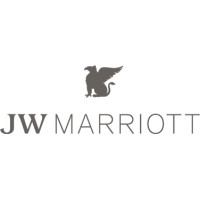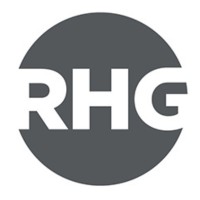Company Details
jw_marriott
15,863
0
7211
jwmarriott.com
0
JW _2903603
In-progress


JW Marriott Company CyberSecurity Posture
jwmarriott.comNo loud pretense. No excess formalities. Just understated elegance you’ll feel the moment you walk into one of over 80 worldwide destinations. JW Marriott is part of Marriott International’s luxury portfolio and consists of beautiful properties in gateway cities and distinctive resort locations in 28 countries around the world. These elegant hotels cater to today’s sophisticated, self-assured travelers, offering them the quiet luxury they seek in a warmly authentic, relaxed atmosphere lacking in pretense. JW Marriott properties artfully provide highly crafted, anticipatory experiences that are reflective of their locale so that their guests have the time to focus on what is most important to them.
Company Details
jw_marriott
15,863
0
7211
jwmarriott.com
0
JW _2903603
In-progress
Between 800 and 849

 JW Marriott Global Score (TPRM)
JW Marriott Global Score (TPRM)XXXX

Description: Marriott International Inc. faced a major data breach involving its Starwood-branded hotels, exposing the personal information of up to 383 million guests. The breach, which led to consolidated litigation, included sensitive customer data such as names, addresses, passport numbers, and payment details. The city of Chicago filed claims against Marriott, but the case was dismissed with prejudice after a settlement was reached. The incident underscores the severe consequences of large-scale data leaks, particularly in the hospitality sector, where trust and data security are critical. The breach not only risked financial fraud and identity theft for affected guests but also damaged Marriott’s reputation, leading to legal repercussions and regulatory scrutiny. The scale of the exposure affecting hundreds of millions highlights the systemic vulnerabilities in handling customer data across global operations.
Description: A third attack against the hotel chain, Marriott, has resulted in yet another data breach. This is the second time this year that data has been stolen from the hotel firm. An employee at the BWI Airport Marriott in Baltimore stated that about 20GB of data, including credit card numbers and PII of visitors and employees, had been stolen. The hacking organisation requested a ransom from Marriott to keep the data they had obtained from being released, but the money was not paid.
Description: Hotel giant Marriott International suffered a data breach after an unknown threat actor breached one of its properties and stole 20GB of files. The hackers stole 20GB worth of documents containing non-sensitive internal business files and some credit card information. Marriott hired a third-party security firm to investigate the incident and notified the affected individuals.
Description: Hotel giant Marriott International suffered a data breach after an unknown person gained access to information about certain Marriott associates by accessing the network of an outside vendor formerly used by Marriott. Marriott immediately confirmed that the vendor was taking appropriate to steps to investigate the incident. The vendor reported that it was working with a forensic firm and had notified law enforcement. This incident did not impact the security of Marriott’s internal HR systems or platforms. The information in the document received by this vendor that contains your information includes your name, address, and Social Security number. Marriott hired a third-party security firm to investigate the incident and notified the affected individuals.
Description: The California Office of the Attorney General disclosed a major data breach at Marriott International, Inc. on November 30, 2018, stemming from an unauthorized access to the Starwood guest reservation database. The breach, which began on or before September 10, 2018, exposed the records of approximately 500 million guests, with 327 million individuals having sensitive personal data compromised. This included names, mailing addresses, email addresses, and encrypted payment card numbers, though the encryption status of the latter was not confirmed to be broken. The incident originated from a vulnerability in Starwood’s systems, which Marriott had acquired in 2016, highlighting a failure in post-merger cybersecurity integration. The breach posed severe risks of identity theft, financial fraud, and reputational damage, given the scale and sensitivity of the exposed data. Regulatory investigations followed, with Marriott facing significant legal and financial repercussions, including fines under GDPR and other data protection laws. The incident underscored critical gaps in third-party risk management and the protection of customer data in large-scale corporate acquisitions.


No incidents recorded for JW Marriott in 2026.
No incidents recorded for JW Marriott in 2026.
No incidents recorded for JW Marriott in 2026.
JW Marriott cyber incidents detection timeline including parent company and subsidiaries

No loud pretense. No excess formalities. Just understated elegance you’ll feel the moment you walk into one of over 80 worldwide destinations. JW Marriott is part of Marriott International’s luxury portfolio and consists of beautiful properties in gateway cities and distinctive resort locations in 28 countries around the world. These elegant hotels cater to today’s sophisticated, self-assured travelers, offering them the quiet luxury they seek in a warmly authentic, relaxed atmosphere lacking in pretense. JW Marriott properties artfully provide highly crafted, anticipatory experiences that are reflective of their locale so that their guests have the time to focus on what is most important to them.


Jumeirah, a global leader in luxury hospitality and a member of Dubai Holding, operates an exceptional portfolio of 31 properties, including 33 signature F&B restaurants, across the Middle East, Europe, Asia and Africa. In 1999, Jumeirah changed the face of luxury hospitality with the opening of t

Radisson Hotel Group is an international hotel group, operating in EMEA and APAC with over 1,320 hotels in operation and under development in +95 countries. The international hotel group is rapidly expanding with a plan to significantly grow the portfolio. The Group’s overarching brand promise is Ev

Since inception, Rotana has grown to be the region’s largest hospitality management company, and a brand that is widely recognized and admired. Rotana currently manages a portfolio of over 100 properties throughout the Middle East, Africa, Eastern Europe and Türkiye offering a wide range of servic

Located in the heart of each destination we call home, a stay at any Fairmont hotel is truly unforgettable. Known for grand and awe-inspiring properties and thoughtful and engaging colleagues who aim to make each and every stay a cherished and memorable experience, we have been the stage for some of
DoubleTree by Hilton hotels are distinctively designed properties that provide true comfort to today’s business and leisure travelers. From the millions of delighted hotel guests who are welcomed with the brand’s legendary, warm chocolate chip cookies at check-in to the advantages of the award-winni

Kerzner International has built a diverse collection of iconic brands and luxury properties, earning international acclaim for pioneering destination-defining hospitality, delivering unrivalled service, and curating transformative guest experiences. We are renowned for creating hospitality brands

We are Accor We are more than 290,000 hospitality experts placing people at the heart of what we do, creating emotion for our guests, and nurturing passion for service and achievement beyond limits. Building on the strength of our teams and of our fully integrated ecosystem of leading brands, perso

More than an iconic place to stay, Holiday Inn Hotels are a place to be in the moment–gathered to celebrate with family, laughing with friends, sharing a meal with the team, or just for some well-deserved me-time. No matter the reason you travel, when you’re here, you’re right where you’re meant to

The Hampton brand, including Hampton Inn, Hampton Inn & Suites and Hampton by Hilton, is an award-winning leader in the upper-midscale hotel segment. With more than 2,700 properties in 32 countries globally, Hampton is part of Hilton Worldwide, the leading global hospitality company. All Hampton Hot
.png)
Ghana's banking sector has taken a major step toward strengthening its defences against rapidly escalating cyber threats, as top banking...
In a landmark gathering at the Marriott Hotel, Ghana's banking executives, regulatory authorities, and cybersecurity experts convened for an...
ManageEngine, a division of Zoho Corporation and a leading provider of enterprise IT management solutions, has announced the UAE debut of...
Safaricom Business on Friday hosted an exclusive cybersecurity breakfast session, bringing together over 50 senior IT and security...
Article - Marriott Focuses on AI and Cybersecurity in Technology Overhaul - Marriott International is implementing a digital transformation...
The multinational hospitality giant is building a model-agnostic chassis featuring an agentic layer.
Manila, Philippines – August 20, 2025 — The Cybersecurity Council of the Philippines (CSCP) successfully hosted Secure Horizons 2025 last...
Date: August 21, 2025. Location: JW Marriott, Juhu, Mumbai. CISO Connect India 2025 is a premier cybersecurity leadership summit bringing together top CISOs...
The Indonesian government is preparing a revision of the Cybersecurity and Resilience (RUU KKS) that will include penalties for platforms that fail to...

Explore insights on cybersecurity incidents, risk posture, and Rankiteo's assessments.
The official website of JW Marriott is http://www.jwmarriott.com.
According to Rankiteo, JW Marriott’s AI-generated cybersecurity score is 802, reflecting their Good security posture.
According to Rankiteo, JW Marriott currently holds 0 security badges, indicating that no recognized compliance certifications are currently verified for the organization.
According to Rankiteo, JW Marriott has not been affected by any supply chain cyber incidents, and no incident IDs are currently listed for the organization.
According to Rankiteo, JW Marriott is not certified under SOC 2 Type 1.
According to Rankiteo, JW Marriott does not hold a SOC 2 Type 2 certification.
According to Rankiteo, JW Marriott is not listed as GDPR compliant.
According to Rankiteo, JW Marriott does not currently maintain PCI DSS compliance.
According to Rankiteo, JW Marriott is not compliant with HIPAA regulations.
According to Rankiteo,JW Marriott is not certified under ISO 27001, indicating the absence of a formally recognized information security management framework.
JW Marriott operates primarily in the Hospitality industry.
JW Marriott employs approximately 15,863 people worldwide.
JW Marriott presently has no subsidiaries across any sectors.
JW Marriott’s official LinkedIn profile has approximately 0 followers.
JW Marriott is classified under the NAICS code 7211, which corresponds to Traveler Accommodation.
No, JW Marriott does not have a profile on Crunchbase.
Yes, JW Marriott maintains an official LinkedIn profile, which is actively utilized for branding and talent engagement, which can be accessed here: https://www.linkedin.com/company/jw_marriott.
As of January 22, 2026, Rankiteo reports that JW Marriott has experienced 5 cybersecurity incidents.
JW Marriott has an estimated 13,887 peer or competitor companies worldwide.
Incident Types: The types of cybersecurity incidents that have occurred include Breach and Data Leak.
Detection and Response: The company detects and responds to cybersecurity incidents through an third party assistance with hired a third-party security firm to investigate the incident, and communication strategy with notified the affected individuals, and third party assistance with forensic firm, and law enforcement notified with yes, and communication strategy with affected individuals notified, and communication strategy with public disclosure via california office of the attorney general..
Title: Data Breach at Marriott Hotel Chain
Description: A third attack against the hotel chain, Marriott, has resulted in yet another data breach. This is the second time this year that data has been stolen from the hotel firm. An employee at the BWI Airport Marriott in Baltimore stated that about 20GB of data, including credit card numbers and PII of visitors and employees, had been stolen. The hacking organisation requested a ransom from Marriott to keep the data they had obtained from being released, but the money was not paid.
Type: Data Breach
Motivation: Financial Gain
Title: Marriott International Data Breach
Description: Hotel giant Marriott International suffered a data breach after an unknown threat actor breached one of its properties and stole 20GB of files.
Type: Data Breach
Threat Actor: Unknown
Title: Marriott International Data Breach
Description: Hotel giant Marriott International suffered a data breach after an unknown person gained access to information about certain Marriott associates by accessing the network of an outside vendor formerly used by Marriott.
Type: Data Breach
Attack Vector: Access to vendor network
Threat Actor: Unknown
Title: Marriott International (Starwood) Data Breach
Description: The California Office of the Attorney General reported a data breach at Marriott International, Inc. involving the Starwood guest reservation database. The breach occurred on or before September 10, 2018, and could potentially affect approximately 500 million guests, with 327 million guests' information including names, addresses, email addresses, and encrypted payment card numbers.
Date Detected: 2018-09-10
Date Publicly Disclosed: 2018-11-30
Type: Data Breach
Title: Marriott International Data Breach Settlement with the City of Chicago
Description: Marriott International Inc. settled the city of Chicago’s claims in consolidated litigation over a data breach that compromised the personal information of as many as 383 million guests at its Starwood-branded hotels. Judge John P. Bailey of the US District Court for the Northern District of West Virginia issued an order dismissing the city’s claims with prejudice on Thursday, one day after the city filed a stipulation of dismissal with the court.
Type: Data Breach
Common Attack Types: The most common types of attacks the company has faced is Breach.
Identification of Attack Vectors: The company identifies the attack vectors used in incidents through Vendor network.

Data Compromised: Credit card numbers, Pii

Data Compromised: Internal business files, Credit card information

Data Compromised: Name, Address, Social security number

Data Compromised: Names, Addresses, Email addresses, Encrypted payment card numbers
Systems Affected: Starwood guest reservation database
Brand Reputation Impact: High (due to scale of breach and sensitive data exposure)
Identity Theft Risk: High (due to exposure of PII)
Payment Information Risk: Moderate (payment card numbers were encrypted)

Data Compromised: Personal information of up to 383 million guests
Legal Liabilities: Consolidated litigation with the city of Chicago (settled)
Identity Theft Risk: ['Personal information of guests']
Commonly Compromised Data Types: The types of data most commonly compromised in incidents are Credit Card Numbers, Pii, , Internal Business Files, Credit Card Information, , Personally Identifiable Information, , Personal Identifiable Information (Pii), Payment Card Information (Encrypted), , Personal Information and .

Entity Name: Marriott
Entity Type: Hotel Chain
Industry: Hospitality
Location: Baltimore

Entity Name: Marriott International
Entity Type: Hotel
Industry: Hospitality

Entity Name: Marriott International
Entity Type: Company
Industry: Hospitality

Entity Name: Marriott International, Inc.
Entity Type: Hospitality Corporation
Industry: Hospitality
Location: Global (Headquartered in Bethesda, Maryland, USA)
Size: Large (Fortune 500 company)
Customers Affected: Approximately 500 million (327 million with detailed records exposed)

Entity Name: Marriott International Inc.
Entity Type: Corporation
Industry: Hospitality
Location: Global (Headquartered in Bethesda, Maryland, USA)
Customers Affected: Up to 383 million guests (Starwood-branded hotels)

Entity Name: City of Chicago
Entity Type: Government Entity
Industry: Public Administration
Location: Chicago, Illinois, USA

Third Party Assistance: Hired a third-party security firm to investigate the incident
Communication Strategy: Notified the affected individuals

Third Party Assistance: Forensic firm
Law Enforcement Notified: Yes
Communication Strategy: Affected individuals notified

Communication Strategy: Public disclosure via California Office of the Attorney General
Third-Party Assistance: The company involves third-party assistance in incident response through Hired a third-party security firm to investigate the incident, Forensic firm.

Type of Data Compromised: Credit card numbers, Pii
Sensitivity of Data: High

Type of Data Compromised: Internal business files, Credit card information
Data Exfiltration: 20GB of files

Type of Data Compromised: Personally identifiable information
Sensitivity of Data: High
Personally Identifiable Information: NameAddressSocial Security number

Type of Data Compromised: Personal identifiable information (pii), Payment card information (encrypted)
Number of Records Exposed: Up to 500 million (327 million with sensitive details)
Sensitivity of Data: High
Data Exfiltration: Yes
Data Encryption: Payment card numbers were encrypted; other data (e.g., names, addresses) likely unencrypted
Personally Identifiable Information: NamesAddressesEmail addresses

Type of Data Compromised: Personal information
Number of Records Exposed: Up to 383 million
Sensitivity of Data: High (personal information of guests)
Personally Identifiable Information: Yes (guest personal information)

Regulations Violated: Potential violations of GDPR (for EU guests), California Consumer Privacy Act (CCPA) considerations,
Regulatory Notifications: Reported to California Office of the Attorney General

Legal Actions: Litigation with the city of Chicago (settled),
Ensuring Regulatory Compliance: The company ensures compliance with regulatory requirements through Litigation with the city of Chicago (settled), .

Source: California Office of the Attorney General
Date Accessed: 2018-11-30

Source: US District Court for the Northern District of West Virginia (Judge John P. Bailey)
Additional Resources: Stakeholders can find additional resources on cybersecurity best practices at and Source: California Office of the Attorney GeneralDate Accessed: 2018-11-30, and Source: US District Court for the Northern District of West Virginia (Judge John P. Bailey).

Investigation Status: Ongoing

Investigation Status: Settled (claims dismissed with prejudice)
Communication of Investigation Status: The company communicates the status of incident investigations to stakeholders through Notified the affected individuals, Affected individuals notified and Public disclosure via California Office of the Attorney General.

Entry Point: Vendor network

High Value Targets: Starwood Guest Reservation Database,
Data Sold on Dark Web: Starwood Guest Reservation Database,
Post-Incident Analysis Process: The company's process for conducting post-incident analysis is described as Hired a third-party security firm to investigate the incident, Forensic firm.
Last Ransom Demanded: The amount of the last ransom demanded was True.
Last Attacking Group: The attacking group in the last incident were an Unknown and Unknown.
Most Recent Incident Detected: The most recent incident detected was on 2018-09-10.
Most Recent Incident Publicly Disclosed: The most recent incident publicly disclosed was on 2018-11-30.
Most Significant Data Compromised: The most significant data compromised in an incident were Credit Card Numbers, PII, , Internal business files, Credit card information, , Name, Address, Social Security number, , Names, Addresses, Email addresses, Encrypted payment card numbers, , Personal information of up to 383 million guests and .
Most Significant System Affected: The most significant system affected in an incident was Starwood guest reservation database.
Third-Party Assistance in Most Recent Incident: The third-party assistance involved in the most recent incident was Hired a third-party security firm to investigate the incident, Forensic firm.
Most Sensitive Data Compromised: The most sensitive data compromised in a breach were Personal information of up to 383 million guests, Addresses, Name, Internal business files, Address, Names, PII, Social Security number, Email addresses, Encrypted payment card numbers, Credit card information and Credit Card Numbers.
Number of Records Exposed in Most Significant Breach: The number of records exposed in the most significant breach was 1.2B.
Highest Ransom Demanded: The highest ransom demanded in a ransomware incident was True.
Most Significant Legal Action: The most significant legal action taken for a regulatory violation was Litigation with the city of Chicago (settled), .
Most Recent Source: The most recent source of information about an incident are California Office of the Attorney General and US District Court for the Northern District of West Virginia (Judge John P. Bailey).
Current Status of Most Recent Investigation: The current status of the most recent investigation is Ongoing.
Most Recent Entry Point: The most recent entry point used by an initial access broker was an Vendor network.
.png)
SummaryA command injection vulnerability (CWE-78) has been found to exist in the `wrangler pages deploy` command. The issue occurs because the `--commit-hash` parameter is passed directly to a shell command without proper validation or sanitization, allowing an attacker with control of `--commit-hash` to execute arbitrary commands on the system running Wrangler. Root causeThe commitHash variable, derived from user input via the --commit-hash CLI argument, is interpolated directly into a shell command using template literals (e.g., execSync(`git show -s --format=%B ${commitHash}`)). Shell metacharacters are interpreted by the shell, enabling command execution. ImpactThis vulnerability is generally hard to exploit, as it requires --commit-hash to be attacker controlled. The vulnerability primarily affects CI/CD environments where `wrangler pages deploy` is used in automated pipelines and the --commit-hash parameter is populated from external, potentially untrusted sources. An attacker could exploit this to: * Run any shell command. * Exfiltrate environment variables. * Compromise the CI runner to install backdoors or modify build artifacts. Credits Disclosed responsibly by kny4hacker. Mitigation * Wrangler v4 users are requested to upgrade to Wrangler v4.59.1 or higher. * Wrangler v3 users are requested to upgrade to Wrangler v3.114.17 or higher. * Users on Wrangler v2 (EOL) should upgrade to a supported major version.
Vulnerability in the Oracle VM VirtualBox product of Oracle Virtualization (component: Core). Supported versions that are affected are 7.1.14 and 7.2.4. Easily exploitable vulnerability allows high privileged attacker with logon to the infrastructure where Oracle VM VirtualBox executes to compromise Oracle VM VirtualBox. While the vulnerability is in Oracle VM VirtualBox, attacks may significantly impact additional products (scope change). Successful attacks of this vulnerability can result in takeover of Oracle VM VirtualBox. CVSS 3.1 Base Score 8.2 (Confidentiality, Integrity and Availability impacts). CVSS Vector: (CVSS:3.1/AV:L/AC:L/PR:H/UI:N/S:C/C:H/I:H/A:H).
Vulnerability in the Oracle VM VirtualBox product of Oracle Virtualization (component: Core). Supported versions that are affected are 7.1.14 and 7.2.4. Easily exploitable vulnerability allows high privileged attacker with logon to the infrastructure where Oracle VM VirtualBox executes to compromise Oracle VM VirtualBox. While the vulnerability is in Oracle VM VirtualBox, attacks may significantly impact additional products (scope change). Successful attacks of this vulnerability can result in unauthorized creation, deletion or modification access to critical data or all Oracle VM VirtualBox accessible data as well as unauthorized access to critical data or complete access to all Oracle VM VirtualBox accessible data and unauthorized ability to cause a partial denial of service (partial DOS) of Oracle VM VirtualBox. CVSS 3.1 Base Score 8.1 (Confidentiality, Integrity and Availability impacts). CVSS Vector: (CVSS:3.1/AV:L/AC:L/PR:H/UI:N/S:C/C:H/I:H/A:L).
Vulnerability in the Oracle VM VirtualBox product of Oracle Virtualization (component: Core). Supported versions that are affected are 7.1.14 and 7.2.4. Easily exploitable vulnerability allows high privileged attacker with logon to the infrastructure where Oracle VM VirtualBox executes to compromise Oracle VM VirtualBox. While the vulnerability is in Oracle VM VirtualBox, attacks may significantly impact additional products (scope change). Successful attacks of this vulnerability can result in takeover of Oracle VM VirtualBox. CVSS 3.1 Base Score 8.2 (Confidentiality, Integrity and Availability impacts). CVSS Vector: (CVSS:3.1/AV:L/AC:L/PR:H/UI:N/S:C/C:H/I:H/A:H).
Vulnerability in the Oracle VM VirtualBox product of Oracle Virtualization (component: Core). Supported versions that are affected are 7.1.14 and 7.2.4. Easily exploitable vulnerability allows high privileged attacker with logon to the infrastructure where Oracle VM VirtualBox executes to compromise Oracle VM VirtualBox. While the vulnerability is in Oracle VM VirtualBox, attacks may significantly impact additional products (scope change). Successful attacks of this vulnerability can result in takeover of Oracle VM VirtualBox. CVSS 3.1 Base Score 8.2 (Confidentiality, Integrity and Availability impacts). CVSS Vector: (CVSS:3.1/AV:L/AC:L/PR:H/UI:N/S:C/C:H/I:H/A:H).

Get company history
















Every week, Rankiteo analyzes billions of signals to give organizations a sharper, faster view of emerging risks. With deeper, more actionable intelligence at their fingertips, security teams can outpace threat actors, respond instantly to Zero-Day attacks, and dramatically shrink their risk exposure window.
Identify exposed access points, detect misconfigured SSL certificates, and uncover vulnerabilities across the network infrastructure.
Gain visibility into the software components used within an organization to detect vulnerabilities, manage risk, and ensure supply chain security.
Monitor and manage all IT assets and their configurations to ensure accurate, real-time visibility across the company's technology environment.
Leverage real-time insights on active threats, malware campaigns, and emerging vulnerabilities to proactively defend against evolving cyberattacks.




